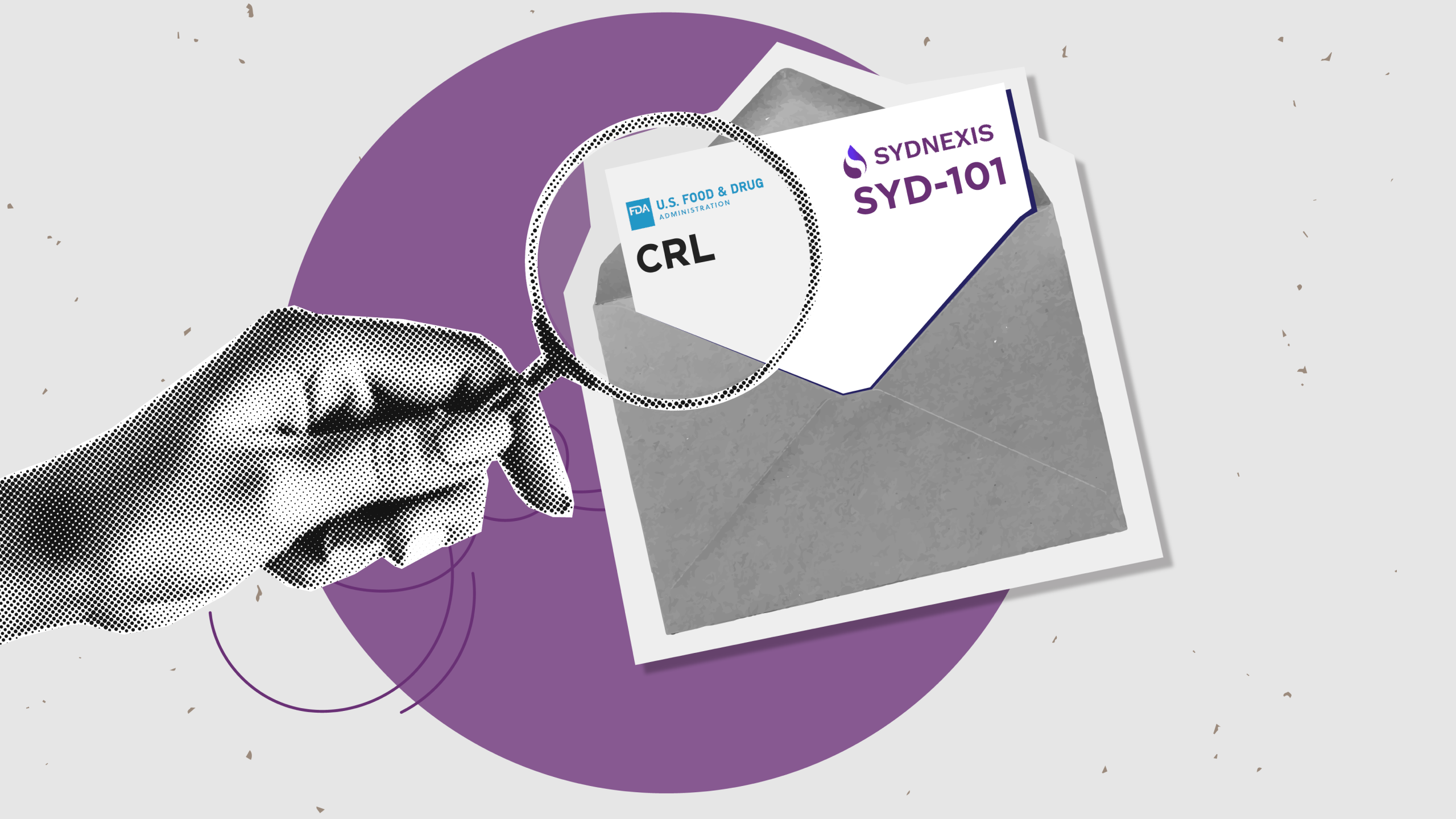It’s not the “yes” Sydnexis hoped for…but it’s not a “no,” either.
The U.S. Food and Drug Administration (FDA) has issued a complete response letter (CRL) for Sydnexis’ (California, USA) new drug application (NDA) for SYD-101, a 0.01% atropine formulation designed to slow the progression of myopia in children.
While the FDA acknowledged that the pivotal Phase III STAR (Study of Atropine for the Reduction of Myopia Progression) trial met its primary efficacy endpoint, it concluded that the data was not sufficient to establish clinical effectiveness in pediatric patients. Importantly, the letter raised no concerns about safety or product quality, suggesting a clear path for Sydnexis to work toward resubmission.
READ MORE: Myopia Correction, Control and Management–What’s the Difference, and Why It Matters
“While we are surprised and disappointed with this decision, Sydnexis is committed to working with the FDA to address the items outlined in the CRL and determining the best path forward toward approval for SYD-101,” said Perry Sternberg, chief executive officer of Sydnexis, in a news release.
Sydnexis plans to collaborate closely with the FDA to address the issues mentioned in the CRL and pursue a potential resubmission. The company remains confident in the strength of its data and the unmet need the therapy aims to fill.
“Our goal is to provide eye care professionals in the U.S. with the first FDA-approved option to help slow the progression of pediatric myopia, rather than continued reliance on compounded formulations of atropine,” said Mr. Sternberg. “We remain confident in our data and the potential of SYD-101 to fill a critical innovation gap and treat the most common eye disease in children.”
Outside the United States, SYD-101 is already approved in the European Union under the trade name Ryjunea, where it is marketed by Santen Pharmaceutical (Osaka, Japan).
READ MORE: SightGlass Vision Reports 18-month DOT Lens Data Showing Reduced Myopia Progression
How SYD-101 works
SYD-101 is a low-dose atropine eye drop formulated with ocular tissue permeability, three-year-room-temparature stability and a neutral pH—features designed to improve tolerability and consistency compared to compounded versions currently used off-label.
The formulation aims to standardize pediatric myopia treatment management by offering a stable, evidence-based product that eye care professionals can prescribe with confidence once it receives approval.
Behind the data
The Phase III STAR trial enrolled over 800 children aged three to 14 years old, making it one of the largest studies in recent times.
- The study met its primary endpoint, showing a reduction in the proportion of patients with significant myopia progression (≥ -0.75 D).
- All secondary endpoints, including annual progression rates at 12, 24 and 36 months, showed statistically significant improvement.
- Among “fast progressors” “(-0.5 D/year), myopia progression was reduced by over 50% after 36 months.
These results highlight the potential of SYD-101 as a reliable, standardized therapy for an increasingly prevalent condition.
READ MORE: Leap of Frame: Pott Glasses Turns 10 with Pop-up, Charms and a Clinical Eye for Fit
The takeaway
If approved, SYD-101 could become the first standardized, FDA-approved low dose atropine treatment, bridging the gap in U.S. pediatric myopia management and providing clinicians with a consistent, quality-controlled option.
For now, Sydnexis’ journey continues…
Editor’s Note: This content is intended exclusively for healthcare professionals. It is not intended for the general public. Products or therapies discussed may not be registered or approved in all jurisdictions, including Singapore.
